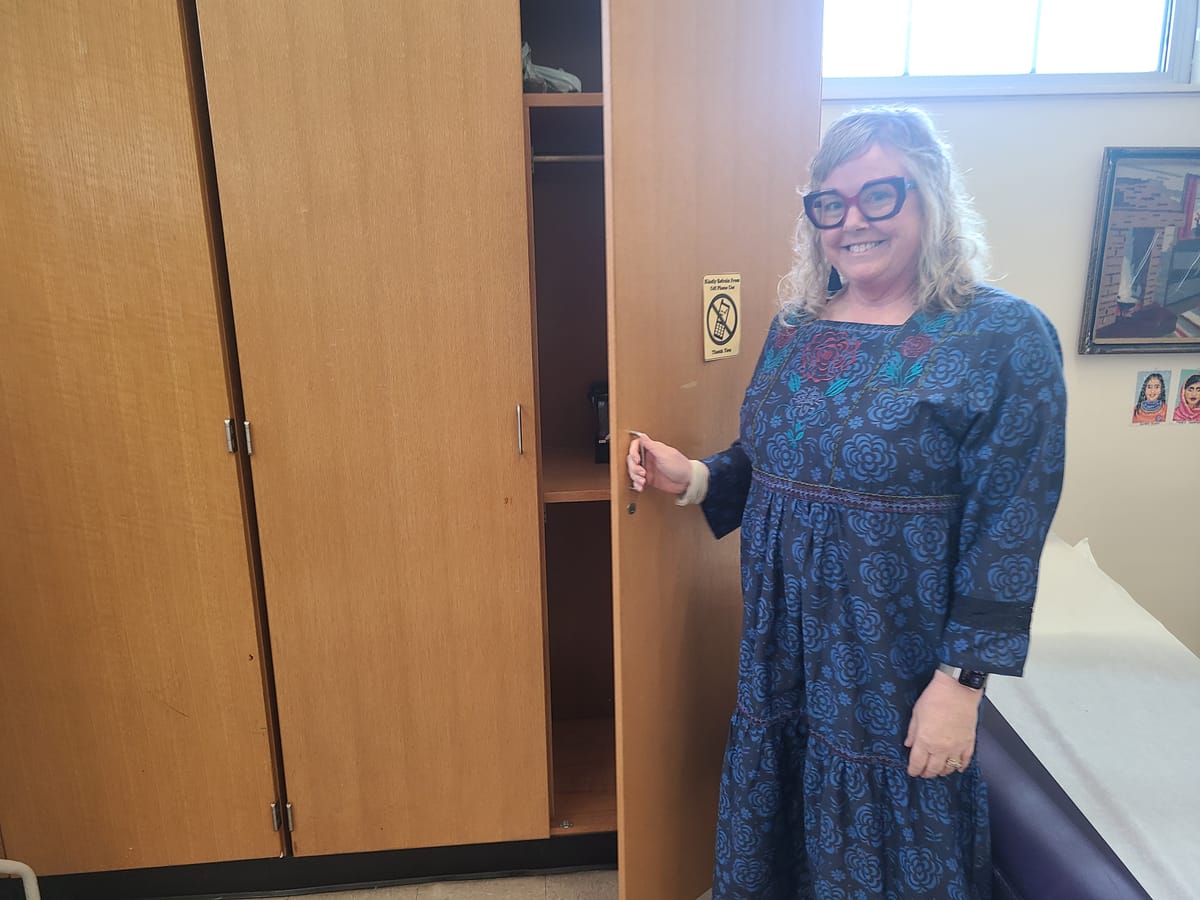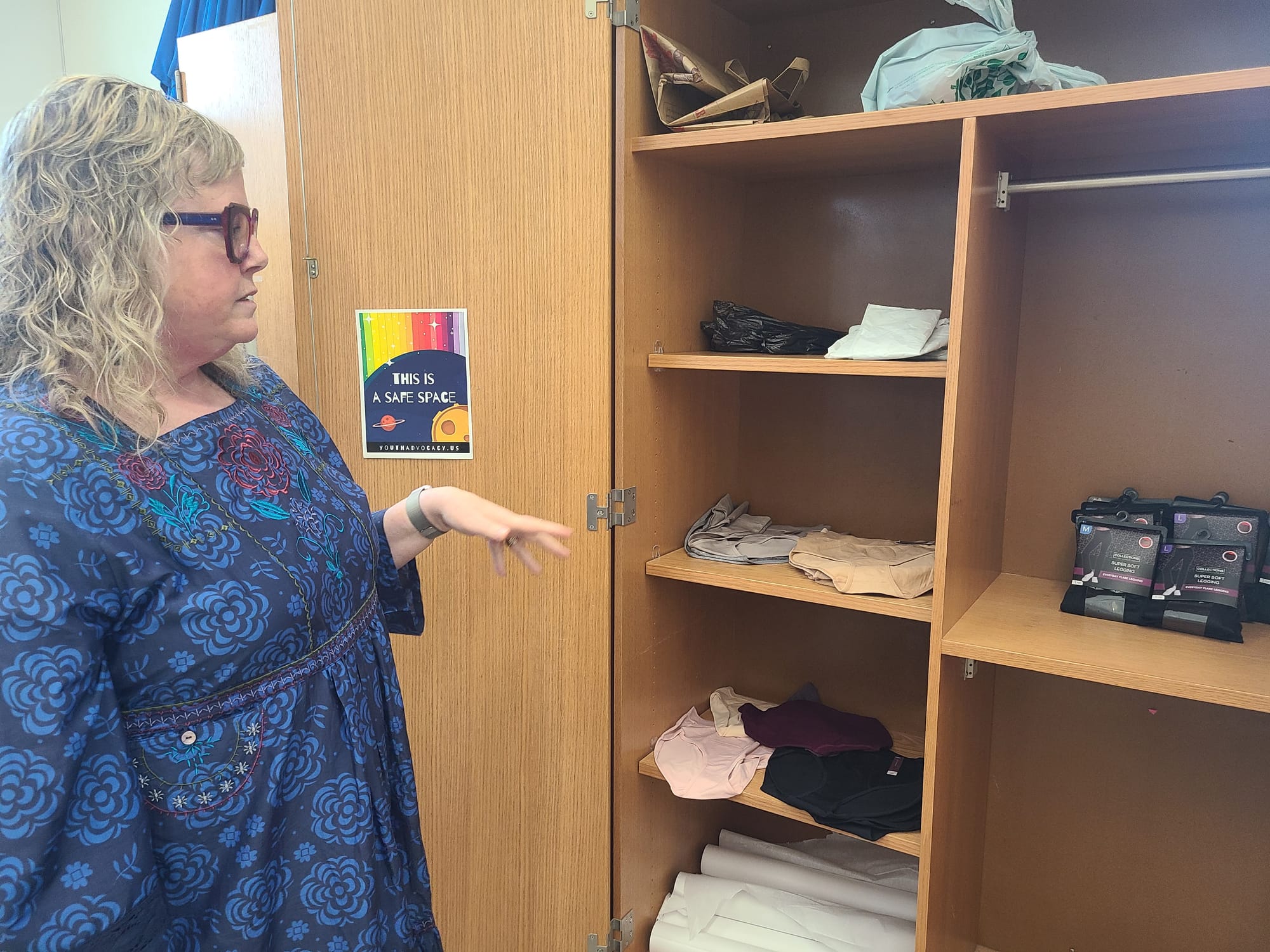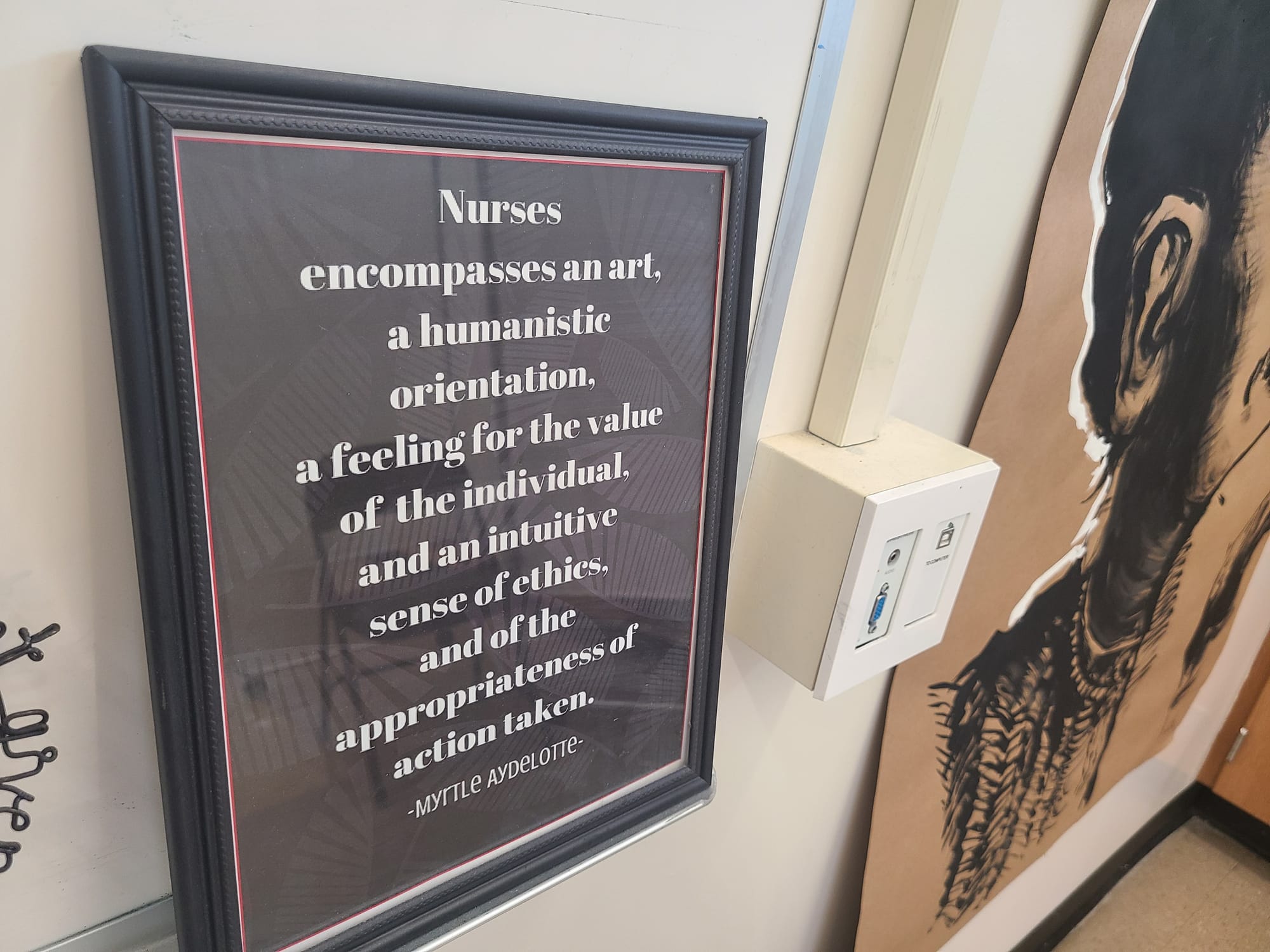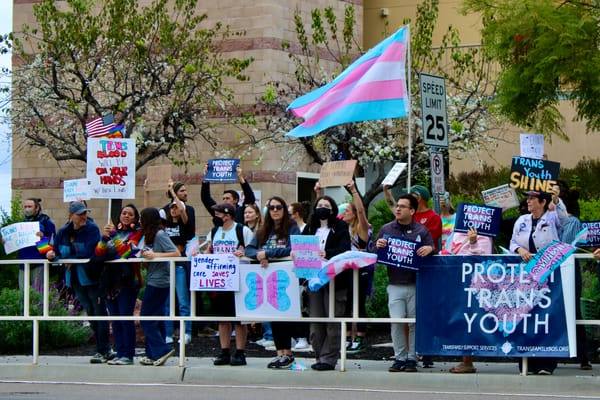National City school nurse stocks ‘Period Pantry’ to keep students in class

Margaret McLean keeps new underwear and leggings of different sizes available in her clinic to help students who need to change clothes in the middle of the school day.
Written by Kate Morrissey, Edited by Lauren J. Mapp
A National City school nurse began stocking her clinic with fresh underwear and leggings earlier this year, along with plastic bags for soiled clothing.
She calls the closet in the biology-lab-turned-clinic her “Period Pantry.”
“There's this idea that menstruation is a secret — it's dirty,” Margaret McLean said. “When menstruating students stain their underwear, they want to go home, and when they go home, they don't come back.”
McLean, a registered credentialed school nurse at National City Middle School, said within the first month of having the period pantry, she kept at least five students from going home.
“Kids need to be in school,” McLean said. “If you miss even one day, you're behind.”

In 2021, California passed the Menstrual Equality for All Act, which requires schools to provide free period products for students, but what McLean does goes beyond that.
Every person who menstruates has had experiences staining clothing, McLean said, and she hopes to normalize conversations about period needs. She said students should feel comfortable telling teachers they need to go to the bathroom to change a pad, and she teaches the students who come to the period pantry to keep a spare set of underwear and pants in their bags in case they run into issues in the future.
“It's 2025. Half the population or more has a period,” she said.
Many studies have found that lack of access to period products — and the shame often associated with talking about menstruation needs — lead to students missing class, from adolescents in middle or high school to young adults in college.
Research presented during the American Academy of Pediatrics 2024 National Conference & Exhibition found that 1 in 3 adolescents does not have proper access to period products. That lack of access can lead to school and work absences as well as urinary tract infections and bacterial vaginosis, according to the academy.
A survey commissioned by PERIOD, an advocacy organization that works to end period poverty, and Thinx, a period products brand, found that more than 4 in 5 teens have either missed class or know a classmate who missed due to lack of access to period products. About 2 in 3 said they believe society teaches people to be ashamed of their periods and that they do not want to be at school when they're menstruating.
Initially, McLean let information about the period pantry spread by word-of-mouth, she said. Students already came to her almost daily to get menstruation supplies such as pads, she said.
She still remembers the first child who she was able to help.
“I remember the look on her face — ‘This is going to get solved. I don't have to feel uncomfortable or go home,’” McLean said.
McLean also keeps heating pads to help students experiencing cramps. She doesn't allow them to use electronics while they're in the clinic to keep them from hiding in there on their phones.
The Sweetwater Union District is special to McLean — her grandfather was among the first to graduate from Sweetwater High School, she said, and both of her parents taught in the district.
She applauded the district for having a registered, certified school nurse at each school. Not every district does that, she said.
A registered nurse with a school nurse credential is able to provide more services to students, including immunization case management, she said.

McLean said she is sharing what she has done with the period pantry with nurses at other schools.
She said one of the middle schoolers’ parents helped her get the period pantry started, and she's reached out to community groups on Facebook, including Buy Nothing, to ask for additional donations.
In the fall, McLean hopes to meet with parents to explain her school nursing philosophy and do more to promote the pantry. She has already made little cards in English and Spanish that students can share with their friends.
People interested in contributing to the Period Pantry can drop off items with the front desk in the lobby of the school at 1701 D Ave., National City, 91950.






